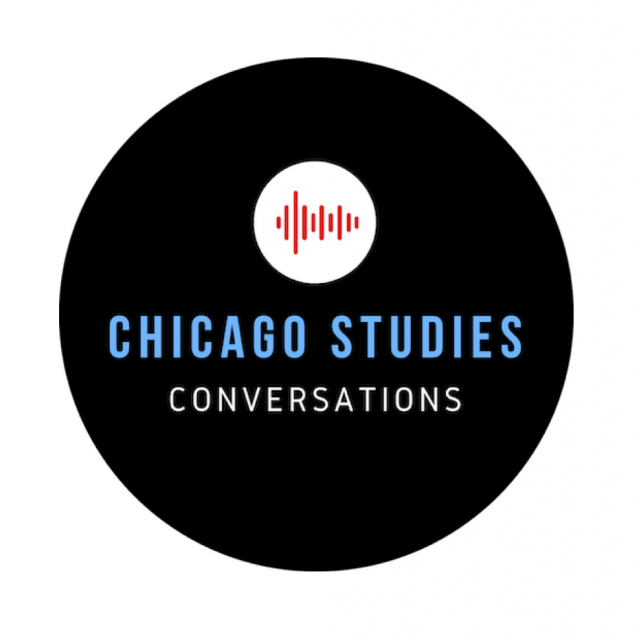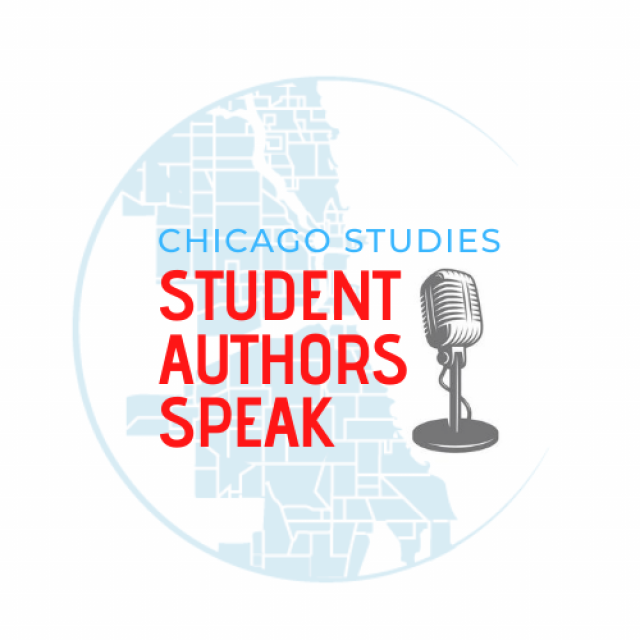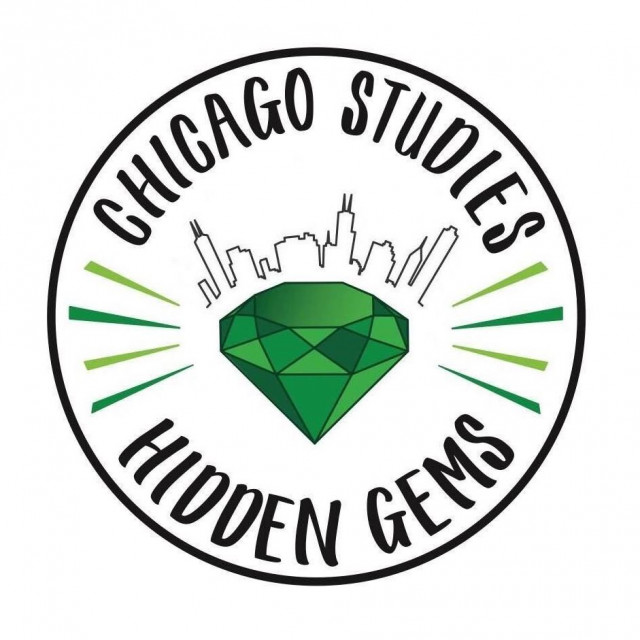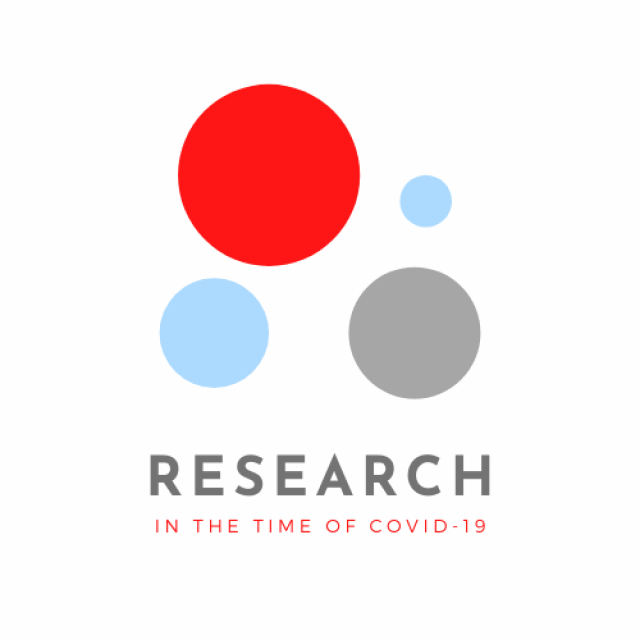Chicago Studies aims to help members of the College community engage with the city and learn from Chicagoans of all walks of life. But how do you do that when you can't GO anywhere, or meet with anyone... or perhaps when you're not even in Chicago? We've developed a variety of podcasts and conversations series to help answer those questions.

Chicago Futures
The COVID-19 pandemic has brought a series of changes, limitations, and devastating losses to the City of Chicago. And yet, the city's many industries have been incredibly inventive and adaptive, finding new and safe ways to bring their products, services, and live entertainment to virtual audiences and at-home customers. Each episode features a dialogue with industry professionals who are reimagining their work in the wake of the pandemic.
- Episode 1: The Future of Chicago Restaurants with representatives from Virtue, Cedars, and PRSPCTVS, a startup serving small restaurants and cafes.
- Episode 2: The Future of Chicago Theatre with representatives from The Neo-Futurists, UrbanTheater Company, A Red Orchid, and The New Colony Theatre.
- Episode 3: The Future of Chicago Nightlife with Chicago drag performer Matthew Harvat (“CircuitMom”) and Edwin Martinez, Senior Production Manager for CircuitMom Productions.
- Episode 4: The Future of Small Business with Erik Archambeault, owner and co-founder of Provisions, and with owners and co-founders Mia Sakai and Tim Hannifan of Ándale Market.
- Episode 5: The Future of Urban Farming with Sydney Coyle, a graduate student at DePaul University working in partnership with Chicago Food Policy Action Council.
- Episode 6: The Future of Chicago's Music Scene with Adam Zanolini, a musician and arts organizers who is the Executive Director of Elastic Arts Foundation and co-founder of the Participatory Music Coalition.

Student Authors Speak
This series features conversations with College alumni and authors of our annual publication Chicago Studies. Each episode is a deep dive into the content of the paper as well as the author's process of selecting a topic, collecting and analyzing data, and formulating a thesis argument.

Hidden Gems: Quarantine Edition
In this series, student podcasters Kimika Padilla, Julia Hesse-Fong, and Sofia Garrick document life in Chicago during the COVID-19 pandemic. Instead of places, they highlight people and organizations, and their efforts to promote resilience and maintain urban identity in the face of a global health crisis. In the words of the creators, "We believe these people, organizations, and efforts constitute even truer 'hidden gems.' In this moment, we are #AloneTogether...or perhaps, apart but not alone." Hidden Gems is sponsored by Chicago Studies and the Program on the Global Environment.
Visit the website or click below to listen:

Research in the Time of COVID-19
The restrictions imposed by our current public health emergency have also significantly altered the research landscape of our city. Scholars have had to change their approaches, ask new questions, and think differently about their findings. This includes not only students trying to devise and execute a BA thesis, but graduate students and professional academics as well.
In this series, we talk with scholars about ways in which research can continue during this time. Each episode features an interview with a different scholar who points students toward a variety of resources and datasets as well as ways in which qualitative researchers are adapting their fieldwork and interviews. Whether you’re in the early stages of a project or are rethinking your BA thesis entirely, this podcast is for you.
- Stacie's own journey from journalism to library science
- The importance of open access and digital scholarship
- Resources and databases of use for potential B.A. thesis work
- Get started over the summer! Read the relevant academic literature; you don’t have to have a specific topic in mind to start. Identify your sources and, if possible, gather your data over the summer.
- Be your own critic. Identify the weaknesses and ambiguities in your own work and ask yourself to critically evaluate whether your data can answer the question you’re asking.
- Be honest about the scope of the conclusions you can draw from your research. Don’t overstretch; do something that is more limited but do it well. Don’t be disappointed if you don’t get the results you expect; a null result is still theoretically important.
- Write and revise constantly.
Chicago Studies @ UChicago · Episode 1: Digital Scholarship & Open Access
Stacie Williams
Director of the Center for Digital Scholarship
This episode features an interview with Stacie Williams, the Director of the Center for Digital Scholarship at the University of Chicago Libraries. Stacie coordinates services and programming related to the creation, distribution and preservation of scholarly content. She previously worked as a librarian and archivist at Case Western Reserve University, the University of Kentucky, Harvard University, and both the Chicago and Lexington (Ky.) public libraries. Williams was previously an advisory archivist for A People’s Archive of Police Violence in Cleveland, which documented people’s experiences with police violence and harassment in the Cleveland metropolitan area, and she was a former journalist for more than 10 years. Her work has been published in The Chicago Reporter, The Nation, Belt magazine, New York magazine, Gordon Square Review, Midnight Breakfast, VICE, Racked, LitHub, The Rumpus, The Toast, and Catapult. Her first book, Bizarro Worlds (Fiction Advocate), a bibliomemoir about race and gentrification, was released in 2018.
How can scholars use the present moment for important research that our society needs? Stacie Williams addresses this very question and shares Ida B. Wells as an example of an anti-lynching activist and scholar who conducted groundbreaking research using the technology of her time. Just this year, Ida B. Wells was honored with a posthumous Pulitzer Prize for her courageous and important research in the Red Record.
Listen now to learn about:
Chicago Studies @ UChicago · Episode 2: Adapting Fieldwork during Social Distancing
Karlyn Gorski
PhD Candidate in Sociology
This episode features an interview with Karlyn Gorski, a doctoral student in sociology at the University of Chicago. Karlyn is also an alumna of the college where she majored in public policy and international studies. Karlyn has worked for a variety of policy and research centers including the UChicago Crime Lab and the Chicago Center for Youth Violence Prevention.
“I read Dude, You're a Fag: Masculinity and Sexuality in High School by C.J. Pascoe, and I was just blown away… It was the coolest thing I had ever read that a researcher could go into a school and take young people seriously, and as really important and informed members of the social worlds they occupy… I had read a lot of literature about schools that took teachers and administrators really seriously, and students were almost absent – or when they were around, it was as an aside or an afterthought. And I just had this really uncomfortable feeling that we were not prioritizing the people that schools are ostensibly for; theoretically we have schools for students. So reading this book… where kids were really, incredibly central to every piece of the book... right away I was like, ‘that’s what I want to do.’”
Chicago Studies @ UChicago · Episode 3: Leveraging City Data for Unique Research Questions
Sam Roth
AB '19, MA '20
This episode features an interview with Sam Roth, a second-year master’s student at the Harris School of Public Policy and a 2019 graduate of the College. As a former president of UC Dems and an alum of several political campaigns, he has been active in politics in Hyde Park and beyond throughout his time at the university, with an emphasis on local issues. A Chicago native, Sam is sad to be leaving the city at the end of the school year but he is excited to take his talents to Washington, DC where he will be working in political research and data analysis for progressive causes.
Sam shares the following advice for the BA thesis process: